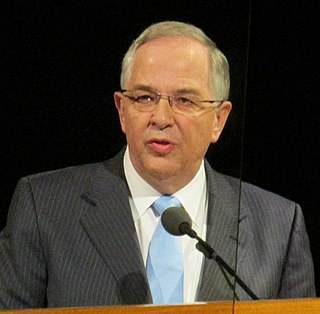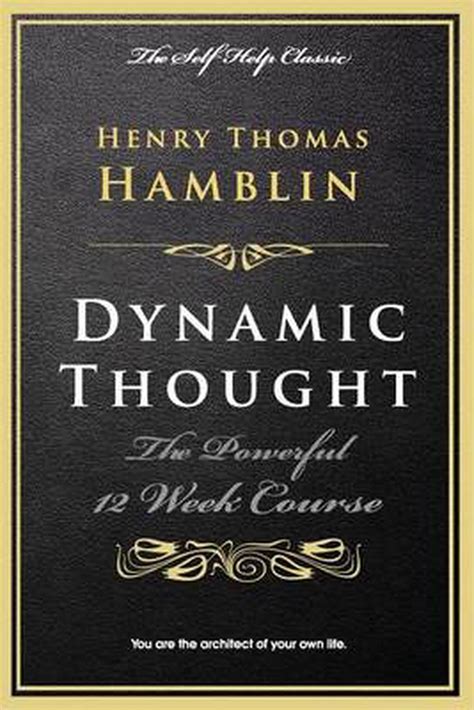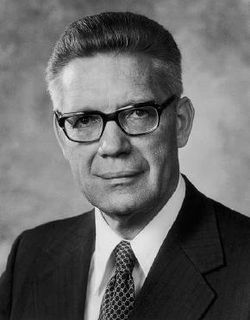A Quote by David Kim
All work flows from some underlying assumptions, and the content of that faith can dramatically change our expectations for our work.
Quote Topics
Related Quotes
Faith and daily life, faith and work-these are not separate things. They are one and the same. To think of them as separate-that faith is faith, and work is work-is theoretical faith. Based on the recognition that work and faith are one and the same, we should put one hundred percent of our energy into our jobs and one hundred percent into our faith, too. When we resolve to do this, we enter the path of victory in life. Faith means to show irrefutable proof of victory amid the realities of society and in our own daily lives.
The gift of faith is a priceless spiritual endowment... Our faith is centered in God our Father, and Jesus Christ, our Savior and Redeemer. It is bolstered by our knowledge that the fullness of the gospel has been restored to the earth; that the Book of Mormon is the word of God; and that prophets and apostles today hold the keys of the priesthood. We treasure our faith, work to strengthen our faith, pray for increased faith, and do all within our power to protect and defend our faith.
Our environment, the world in which we live and work, is a mirror of our attitude and expectations. If we feel that our environment could stand some improvement, we can bring about that change for the better by improving our attitude. The world plays no favorites. It's impersonal. It doesn't care who succeeds and who fails. Nor does it care if we change. Our attitude toward life doesn't affect the world and the people in it nearly as much as it affects us.
Philosophy is a necessary activity because we, all of us, take a great number of things for granted, and many of these assumptions are of a philosophical character; we act on them in private life, in politics, in our work, and in every other sphere of our lives -- but while some of these assumptions are no doubt true, it is likely, that more are false and some are harmful. So the critical examination of our presuppositions -- which is a philosophical activity -- is morally as well as intellectually important.
Faith is believing that the universe is on our side, and that the universe knows what it's doing. Faith is a psychological awareness of an unfolding force for good, constantly at work in all dimensions. Our attempts to direct this force only interferes with it. Our willingness to relax into it allows it to work on our behalf.
Faith is a gift of God. Without it there would be no life. And our work, to be fruitful, and to be all for God, and to be beautiful, has to be built of faith. Faith in Christ who has said, I was hungry, I was naked, I was sick, and I was homeless, and you ministered to me! On these words of His all our work is based.
Our task is not to find the maximum amount of content in a work of art, mush less to squeeze more content out of the work than is already there. Our task is to cut back on content so we can see the thing at all. The aim of all commentary on art now should be to make works of art - and, by analogy, our own experience - more, rather than less, real to us.
Seeing ourselves as we want to be is a key to personal growth. To successfully bring about change in our lives we need to implement a system of change that is build upon three assumptions. First Assumption: We change our lives by changing the attitudes of our minds. Second Assumption: We become what we think about all day long. Third Assumption: Our mind is naturally goal seeking. Please remember these assumptions. Our mind is always trying to accomplish something. We have a powerful machine wanting to achieve goals. It will set the goals that we allow it to.
Lakoff's idea is that most of our thought is guided by underlying conceptual mappings between two domains that share some content, that overlap in the sets of their attributes. ... Contrary to the assertions of Lakoff and some of the cognitive metaphor theorists, people can read through to an underlying mapping, but only when the surface metaphor is new to them.
We are here on earth to work-to work long, hard, arduous hours, to work until our backs ache and our tired muscles knot, to work all our days. This mortal probation is one in which we are to eat our bread in the sweat of our faces until we return to the dust from whence we came. Work is the law of life; it is the ruling principle in the lives of the Saints.
Wyoming is a special place: Where our farmers and ranchers rise before dawn and work until night to feed our nation. Where our coal miners and oil field workers produce the energy that powers America's homes and businesses, and where our families are guided by faith, know the value of hard work, and deeply love our land.



































